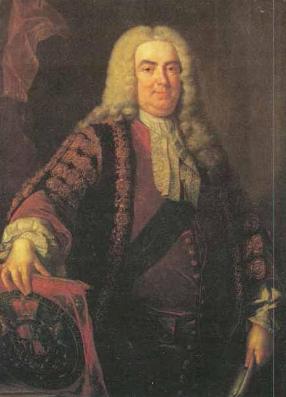Prime Path (poj 3126 bfs)
2016-01-17 08:30
369 查看
| Language: Default Prime Path
 The ministers of the cabinet were quite upset by the message from the Chief of Security stating that they would all have to change the four-digit room numbers on their offices. — It is a matter of security to change such things every now and then, to keep the enemy in the dark. — But look, I have chosen my number 1033 for good reasons. I am the Prime minister, you know! — I know, so therefore your new number 8179 is also a prime. You will just have to paste four new digits over the four old ones on your office door. — No, it’s not that simple. Suppose that I change the first digit to an 8, then the number will read 8033 which is not a prime! — I see, being the prime minister you cannot stand having a non-prime number on your door even for a few seconds. — Correct! So I must invent a scheme for going from 1033 to 8179 by a path of prime numbers where only one digit is changed from one prime to the next prime. Now, the minister of finance, who had been eavesdropping, intervened. — No unnecessary expenditure, please! I happen to know that the price of a digit is one pound. — Hmm, in that case I need a computer program to minimize the cost. You don't know some very cheap software gurus, do you? — In fact, I do. You see, there is this programming contest going on... Help the prime minister to find the cheapest prime path between any two given four-digit primes! The first digit must be nonzero, of course. Here is a solution in the case above. 1033 1733 3733 3739 3779 8779 8179 The cost of this solution is 6 pounds. Note that the digit 1 which got pasted over in step 2 can not be reused in the last step – a new 1 must be purchased. Input One line with a positive number: the number of test cases (at most 100). Then for each test case, one line with two numbers separated by a blank. Both numbers are four-digit primes (without leading zeros). Output One line for each case, either with a number stating the minimal cost or containing the word Impossible. Sample Input 3 1033 8179 1373 8017 1033 1033 Sample Output 6 7 0 Source Northwestern Europe 2006 |
转换方式:是变换数中某一位的数字(第一位不能为零,其它的变换数字是0~~9),变换之后的数也为素数。
思路:bfs。搜索求最短路径,非常easy就想到广度优先搜索。由于广度优先搜索。第一次搜到得到的步数就是最少的步数。另外打素数表提高推断的时候的效率。
代码:
#include <iostream>
#include <cstdio>
#include <cstring>
#include <algorithm>
#include <cmath>
#include <string>
#include <map>
#include <stack>
#include <vector>
#include <set>
#include <queue>
#pragma comment (linker,"/STACK:102400000,102400000")
#define maxn 10005
#define MAXN 2005
#define mod 1000000009
#define INF 0x3f3f3f3f
#define pi acos(-1.0)
#define eps 1e-6
typedef long long ll;
using namespace std;
bool ISprime[maxn];
bool visit[maxn];
int m,n,a,b,c,d;
struct Node
{
int p[4];//用数组存各位数
int step;
};
void prime() //素数筛法
{
for (int i=2;i<maxn;i++)
{
if (i%2)
ISprime[i]=true;
else
ISprime[i]=false;
}
int m=sqrt(10010.0);
for (int i=3;i<m;i++)
{
if (ISprime[i])
{
for (int j=i+i;j<maxn;j+=i)
ISprime[j]=false;
}
}
}
int bfs()
{
Node st,now;
memset(visit,false,sizeof(visit));
queue<Node>Q;
while (!Q.empty())
Q.pop();
visit[m]=true;
st.p[0]=m/1000;st.p[1]=(m/100)%10;st.p[2]=(m/10)%10;st.p[3]=m%10;
// printf("%d %d %d %d\n",st.a[0],st.a[1],st.a[2],st.a[3]);
st.step=0;
Q.push(st);
while (!Q.empty())
{
st=Q.front();
Q.pop();
if (st.p[0]==a&& st.p[1]==b&&st.p[2]==c&&st.p[3]==d)
{
return st.step;
}
for (int i=0;i<=3;i++)
{
for (int j=0;j<10;j++)
{
if (st.p[i]==j)
continue;
if (i==0&&j==0)
continue;
now.p[0]=st.p[0];
now.p[1]=st.p[1];
now.p[2]=st.p[2];
now.p[3]=st.p[3];
now.p[i]=j;
int x=now.p[0]*1000+now.p[1]*100+now.p[2]*10+now.p[3];
if (ISprime[x]&&!visit[x])
{
visit[x]=true;
now.step=st.step+1;
Q.push(now);
}
}
}
}
return -1;
}
int main()
{
prime();
int cas;
scanf("%d",&cas);
while (cas--)
{
scanf("%d%d",&m,&n);
a=n/1000;b=(n/100)%10;c=(n/10)%10;d=n%10;
// printf("%d %d %d %d\n",a,b,c,d);
int ans=bfs();
if (ans==-1)
printf("Impossible\n");
else
printf("%d\n",ans);
}
return 0;
}
/*
3 1033 8179 1373 8017 1033 1033
*/
相关文章推荐
- record
- HOW TO: How to import UUID function into Postgre 9.3
- Win10电池图标最小化后消失无法重新开启该怎么办?
- C语言变量声明内存分配
- STM8S 串口应用 UART2 STM8S105
- c++ 程序设计 week4 运算符重载
- AT&T 拥抱开源,软件开源程度或将达到50%
- php的curl获取https加密协议请求返回json数据进行信息获取
- BZOJ-1207 打鼹鼠 DP(LIS)
- BZOJ-1207 打鼹鼠 DP(LIS)
- 可靠的功能测试--Espresso和Dagger2
- IIS系列:一、安装IIS组件
- OSChina 周日乱弹 —— 突破天际的印度人民
- BZOJ 2176 Strange String (最小表示法)
- [LeetCode] Create Maximum Number 创建最大数
- *Max Points on a Line
- G面经prepare: BuyGoods
- **Word Ladder II
- Hi, I'm Fred
- 【Leetcode】Contains Duplicates II #I love HashTable#
